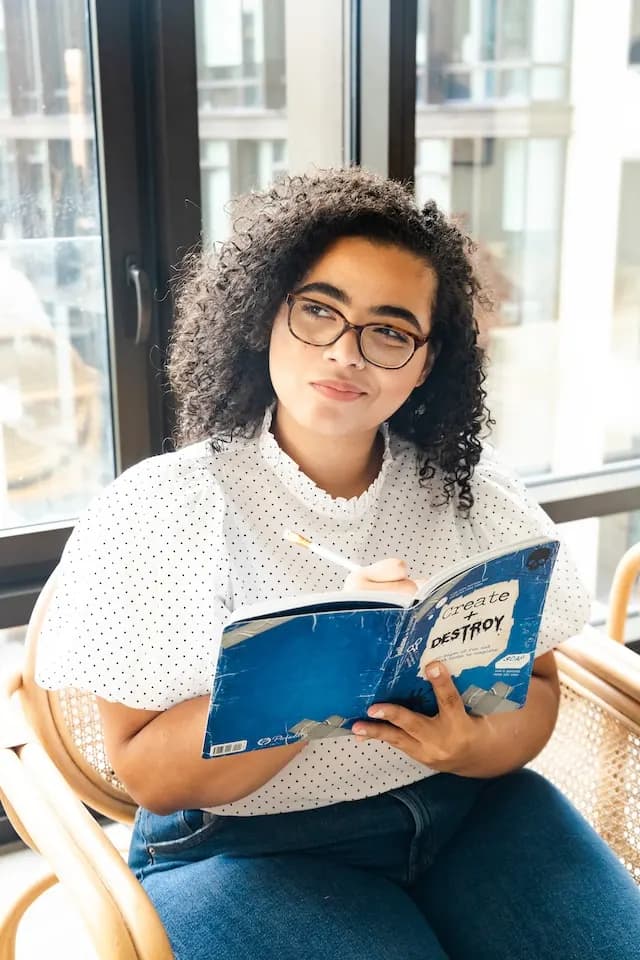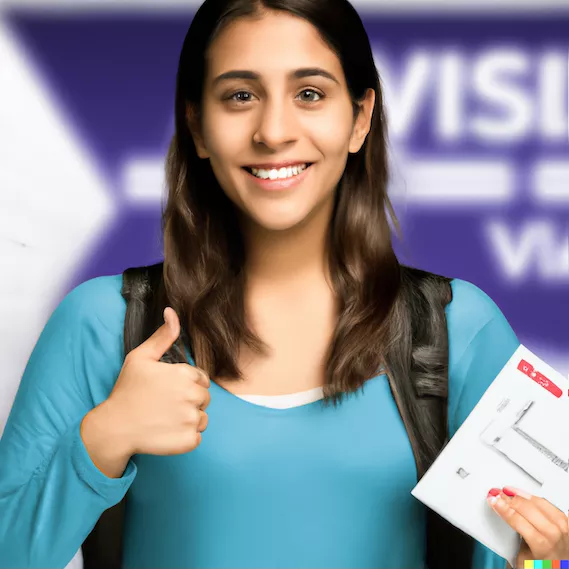Top 25 J1 Visa Interview Questions for Teachers Exchange Program in 2025

Applying for a J1 visa under a Teacher Exchange Program can be an exciting yet nerve-wracking process. You’ve prepared your lesson plans, completed all the paperwork, and now it’s time to ace that interview! But what will the visa officer ask you? Don’t worry—I’ve got you covered. In this blog, we’re diving into the top 25 J1 visa interview questions for Teacher Exchange Programs, complete with sample answers and reasoning to help you knock it out of the park.
Ready to feel confident about your upcoming interview? Let’s dive in!
1. Why do you want to participate in the Teacher Exchange Program?
Sample Answer: I want to participate in the Teacher Exchange Program because it will allow me to experience a different educational system and culture. I believe that teaching in the U.S. will not only enhance my teaching skills but also help me share these experiences with my students back home.
Reasoning: This answer shows the interviewer that you’re motivated by professional growth and cultural exchange—key components of the J1 visa.
Tip: They want to hear about passion, not vacation plans—keep it professional!
2. What subjects do you plan to teach in the U.S., and how do they align with your experience?
Sample Answer: I plan to teach middle school math, which I have been teaching for the past 5 years. My experience includes developing interactive lessons that cater to diverse learning styles, and I’m excited to bring that to my U.S. classroom.
Reasoning: This answer directly ties your experience to the role you’ll be taking in the U.S., demonstrating your readiness.
Tip: Connect your dots! The subject you teach must line up with your past experience.
3. How will teaching in the U.S. benefit your students back home?
Sample Answer: Teaching in the U.S. will help me learn innovative methods and techniques that I can implement in my home country. I’ll also be able to introduce my students to a global perspective, enriching their understanding of other cultures.
Reasoning: This answer highlights the exchange part of the Teacher Exchange Program and shows your commitment to returning home and applying what you’ve learned.
Tip: Think of yourself as a cultural bridge—you’re there to learn and bring it back!
4. What do you know about the U.S. education system?
Sample Answer: I know the U.S. education system emphasizes student-centered learning and values diverse methods of instruction, which is something I’m eager to adopt. I’ve done research on the Common Core standards and how they shape the curriculum in most states.
Reasoning: Demonstrating prior knowledge of the U.S. education system shows your seriousness and commitment.
Tip: Do some homework! Show them you’re not walking in blind.
5. Why did you choose the U.S. for your Teacher Exchange Program?
Sample Answer: The U.S. is known for its diverse student population and innovative teaching methods. I believe that the cultural diversity I’ll encounter will enrich my teaching practice and allow me to share new perspectives with my students back home.
Reasoning: This response shows the interviewer that you’ve chosen the U.S. for solid, educational reasons—not just because you want to visit the country.
Tip: Don’t make it sound like a bucket list trip—this is about education!
6. How will you adjust to teaching in a foreign classroom?
Sample Answer: I’m adaptable and open to new experiences. I plan to spend time observing and understanding the classroom dynamics before introducing my own methods. Building rapport with students will be my first priority.
Reasoning: This response reflects your willingness to adapt and learn, traits that are essential for success in an international teaching environment.
Tip: Don’t act like you already know everything—you’re there to learn too!
7. What challenges do you expect to face as a teacher in the U.S.?
Sample Answer: I expect to encounter challenges such as adjusting to different classroom management styles and understanding the diverse cultural backgrounds of my students. However, I see these challenges as opportunities to grow professionally.
Reasoning: This answer shows self-awareness and the ability to anticipate challenges while maintaining a positive outlook.
Tip: Don’t worry—acknowledging challenges makes you human, not weak!
8. How do you plan to contribute to the U.S. school community outside of teaching?
Sample Answer: I plan to get involved in extracurricular activities, such as coaching the debate team or organizing cultural exchange events that allow my students to learn more about my country.
Reasoning: This response reflects a willingness to engage with the school community beyond your classroom duties, which is highly valued.
Tip: You’re not just a teacher—you’re part of the school ecosystem!
9. How do you handle classroom discipline?
Sample Answer: I believe in setting clear expectations and using positive reinforcement. If discipline issues arise, I prefer to address them with a conversation rather than punitive measures, helping students understand the impact of their behavior.
Reasoning: This shows that you have a proactive and student-focused approach to discipline, which aligns with the ethos of many U.S. schools.
Tip: You’re not a drill sergeant—keep it constructive!
10. How will you balance teaching responsibilities with adapting to a new culture?
Sample Answer: I’m used to managing my time effectively, and I plan to dedicate time outside of school hours to cultural immersion. I’m excited to learn from both my colleagues and the local community.
Reasoning: This response shows that you have thought about the balance between your professional responsibilities and adapting to a new culture, which is a big part of the exchange.
Tip: You’ve got two jobs: teach and learn!
11. How do you plan to stay connected with your home country while in the U.S.?
Sample Answer: I’ll stay connected through regular communication with my family and fellow educators. I also plan to document my experiences and share them through a blog or social media, allowing me to keep a close connection to my community.
Reasoning: This response reassures the interviewer that you’re committed to maintaining ties with your home country, which is important for a J1 visa.
Tip: Don’t go MIA—stay in touch with your roots!
12. What makes you a good candidate for this Teacher Exchange Program?
Sample Answer: My experience in education, combined with my passion for cross-cultural exchange, makes me an ideal candidate. I’m dedicated to continuous learning, and I believe this program will help me bring back valuable knowledge to my students in [home country].
Reasoning: This response showcases your qualifications while reiterating your commitment to returning home, a key factor for the J1 visa.
Tip: You’re not just good—you’re great, so show it!
13. What do you hope to learn from American students and colleagues?
Sample Answer: I’m excited to learn how American teachers engage students in active learning and how they use technology in the classroom. I also want to learn more about inclusive education practices and how they support students with diverse needs.
Reasoning: This answer shows a willingness to learn from your colleagues and apply those learnings in your home country.
Tip: Be a sponge—soak up everything you can!
14. Can you share a successful teaching experience from your career?
Sample Answer: Last year, I implemented a project-based learning approach where students worked on solving real-world problems. The students became deeply engaged, and their test scores improved significantly. I’m eager to bring similar innovative approaches to the U.S. classroom.
Reasoning: This answer highlights your creativity and success as an educator, showing that you’re ready to contribute in the U.S.
Tip: Your classroom isn’t a one-man show—let your students shine!
15. How do you approach teaching students with different learning styles?
Sample Answer: I always try to incorporate a variety of teaching methods, such as visual aids, hands-on activities, and group discussions. This ensures that every student, regardless of their learning style, can grasp the material.
Reasoning: This answer demonstrates your adaptability and commitment to meeting the diverse needs of your students, which is essential for teaching in a U.S. classroom.
Tip: No one-size-fits-all here—get creative!
16. What challenges do you foresee in adapting to American culture?
Sample Answer: I expect the biggest challenge will be adjusting to the pace of life and the differences in school culture. However, I’m open to learning and excited about the opportunity to immerse myself in a new environment.
Reasoning: This answer shows that you’ve thought about potential challenges and are prepared to adapt, which is key for a successful exchange.
Tip: It’s not an alien planet—just take it one day at a time!
17. How will you handle being away from home for an extended period?
Sample Answer: While I know I’ll miss home, I see this as a once-in-a-lifetime opportunity. I’ll stay in touch with my loved ones regularly and focus on making the most of my experience in the U.S.
Reasoning: This answer addresses the emotional aspect of the exchange while showing that you’re committed to the program.
Tip: Don’t pack too much homesickness in your suitcase—it’ll slow you down!
18. How do you plan to share your U.S. experience with your home school or community?
Sample Answer: I plan to give workshops and presentations to my colleagues and students about the U.S. teaching methods and cultural experiences. I’ll also share classroom resources and techniques that I learn during my exchange.
Reasoning: This answer shows a plan for disseminating your new knowledge, which is a crucial part of the Teacher Exchange Program.
Tip: Sharing is caring—don’t keep those new tricks to yourself!
19. Have you ever traveled abroad before?
Sample Answer: Yes, I’ve traveled to [Country] for a short-term educational conference. It was a great opportunity to learn from educators in other countries, and I’m excited to bring that same enthusiasm to the U.S.
Reasoning: If you have travel experience, this shows that you’re familiar with navigating new cultures and environments, which will ease the interviewer’s concerns about how well you’ll adjust.
Tip: If you’ve traveled, great! If not, don’t sweat it—this could be your first big adventure!
20. What teaching methods do you currently use, and how might they differ from those used in the U.S.?
Sample Answer: I currently use a mix of direct instruction and group work, with a focus on inquiry-based learning. I expect U.S. schools to emphasize more technology integration, which I’m excited to explore.
Reasoning: This answer shows that you’re aware of potential differences but are open to learning and adapting to new methods.
Tip: You’re not stuck in your ways, right? Be flexible like a yoga master!
21. Do you have any concerns about your role in the U.S. school system?
Sample Answer: My only concern is ensuring that I quickly adapt to the U.S. classroom culture. However, I’m confident that with support from my colleagues, I’ll be able to adjust smoothly.
Reasoning: Acknowledging concerns shows you’re thoughtful, but keeping a positive outlook assures the interviewer that you can handle it.
Tip: Concerned? That’s fine—just don’t let it turn into panic!
22. What motivates you as a teacher?
Sample Answer: Seeing my students succeed and knowing that I’ve played a role in their growth is what keeps me motivated. I also enjoy the process of learning alongside my students.
Reasoning: This response emphasizes your passion for teaching, which is exactly what the program is looking for in its candidates.
Tip: It’s more than just a job—it’s a calling!
23. How do you approach cultural sensitivity in the classroom?
Sample Answer: I believe in creating an inclusive environment where every student feels respected and heard. I incorporate diverse perspectives into my lessons to help students appreciate different cultures.
Reasoning: This answer demonstrates cultural awareness, a vital skill for teaching in the diverse U.S. educational environment.
Tip: Different cultures? No problem—celebrate the differences!
24. What do you think is the most important quality in a teacher?
Sample Answer: Adaptability is crucial because every student and classroom is different. Being able to adjust your approach to meet students’ needs is what makes a teacher effective.
Reasoning: This shows that you understand the dynamic nature of teaching and the importance of flexibility.
Tip: Adapt or get left behind—flexibility is your superpower!
25. How will you manage the cost of living in the U.S.?
Sample Answer: I’ve carefully budgeted for my stay in the U.S. and plan to live modestly. I’ll also take advantage of any financial advice offered by the program to ensure I manage my expenses well.
Reasoning: This answer assures the interviewer that you’ve thought about the practicalities of living abroad and are prepared to handle it.
Tip: You don’t need to live like a king—just keep your wallet happy!
Final Thoughts
Preparing for a J1 visa interview doesn’t have to feel like walking into the unknown. With these sample questions and answers, you’re well on your way to acing that interview. Remember to practice, stay confident, and be authentic in your responses. And hey, if you’re feeling nervous, just picture the visa officer as one of your students asking questions!
Good luck, and go rock that interview!




